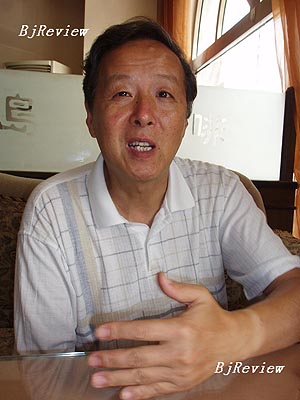
Over the last 30 years, the national college entrance exam has been an opportunity for many Chinese youngsters to change their fate or even the fate of their families.
As the 10-year "cultural revolution" approached its end in 1977, Deng Xiaoping, the state leader known as the chief architect of China's reform and opening up, resumed the national college entrance examination based on academics after a 10-year interval. Thus many young people were recruited according to their scores at the exam and given the opportunity to receive formal higher education again.
Statistics from the Ministry of Education in 2007 reveal that over the 30 years since China resumed its college entrance exam, China's universities, colleges and other academies have recruited 36 million students, with recruiting rates rising from 4.7 percent in 1977 to 56.85 percent in 2006. In 2007, the total population of examinees has for the first time surpassed 10 million, which is almost 22 fold of the number in 1977.
In recent years, controversy has arisen over the fairness of the exam and how to reform it. In July, a non-governmental research institute, the 21st-Century Education Development Research Institute, publicized its plan for reform. It was the first comprehensive plan for reforming the exam. Beijing Review interviewed a main organizer of the project, Professor Yang Dongping from Beijing Institute of Technology (BIT), who is also head of the 21st-Century Education Development Research Institute.
Beijing Review: Why did you choose to release the reform plan on the eve of the 30th anniversary of the exam's resumption?
Yang Dongping: We wanted to increase media exposure and then exert some influence on government policies. There are not many brand new ideas in this plan. Rather it is basically a summary of reform suggestions we have put forward. Since we put all suggestions together, this plan has a comprehensive framework, goals and concrete measures.
In China's reform and opening up, reform of the education system has by and large lagged behind other areas. So some people must stand up and call for it. As more and more people stand up, the government will then be alerted and conduct the reform. Our plan has attracted attention from media and the public, and received positive response from the Ministry of Education. Moreover, some provincial governments have also taken part in discussion of the plan. I should say that we have achieved our goal.
Without question the reinstitution of the college entrance exam has injected a lot of vigor into China's social and economic development. However, controversies surrounding the system have never stopped. What in your opinion are the main problems?
Almost every country in the world has a college entrance exam. We should admit China's college entrance exam does have its value, but this doesn't mean it doesn't need reform, because any system is a process of constant self-improvement to overcome its shortcomings. However, we also need to clarify that saying the system needs reform is not a denial of the system. This is the biggest misunderstanding for some people regarding China's college entrance exam.
Using one exam to decide a person's life and using one paper for all people are the two biggest drawbacks of the current system. In the recruiting process, colleges and universities lack flexibility in selecting students while students also don't have much control in choosing universities and majors. More and more universities preferably recruit local applicants and random bonus score policies have generated unfairness and even corruption in recruiting.
Reform of the college entrance exam has been going on for a few years, but the result so far is unsatisfactory. Why is this reform so difficult?
The past reforms mainly concentrated on changing tested courses, without any change to the scheme. Although universities and colleges were given some freedom in recruiting, the freedom has been misused due to lack of supplementary policies. Since 2000, in order to give students more opportunities to be recruited, a spring exam was added to complement the summer exam. However, the recruiting colleges and universities have been confined to private universities and colleges or vocational colleges, with the majority of higher education institutions excluded. This has made the system actually diminish.
Do you think reform of the college entrance exam can learn from international experience?
Yes, a lot of experience can be learned from other countries. But China is not supposed to copy this experience but learn from it. For example, learning from the Test of English as a Foreign Language from the United States, China can design English as a social test rather than one course of the entrance exam. Universities can decide their own acceptable scores while the pressure on students of preparing for the college entrance exam can be relieved. Designing such a test would not be difficult with all the experience of other countries to draw on. The key is the vision and determination for reform.
I have noticed that the reform plan emphasizes two rights: the right of universities to select students and the right of students to choose universities. Why is that?
The current college entrance exam has for a long while ignored these two rights, especially that of students to decide universities. In our plan this right is clearly put forward for the first time.
| 